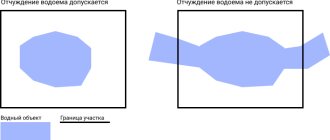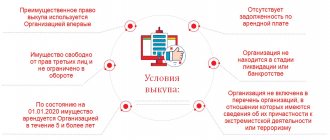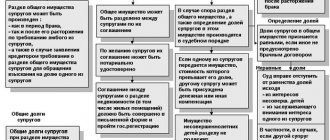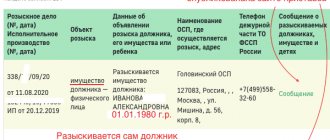Real estate lawyer in St. Petersburg
— Legal advice, — Conducting real estate transactions, — Drawing up claims, claims and complaints, — Protecting your interests in court.
lawyer!
lawyer!
Or call us right now! We are in touch!
+7-921-904-34-26
Applications for the use of real estate : examples and recommendations. Legal advice from real estate lawyers in St. Petersburg.
Objects in the “real estate” category include plots of land, buildings, apartments, houses, etc.
To become the owner of real estate, you need to submit an application for the use of real estate to the executive authorities, which have the right to make decisions on issues that arise. For example, it is possible to rent a plot of land, enter into a contract for free fixed-term use, establish a procedure for using accumulated property together, and allocating a share of the land.
Ask a question, we are online!
Leave a message!
+7-921-904-34-26 consultation with a real estate lawyer in St. Petersburg

The concept of tenure
In accordance with the provisions of Art. 606 of the Civil Code of the Russian Federation:
A lease agreement can be defined as a transaction under the terms of which the lessor undertakes to provide the tenant for temporary possession and use or temporary use of certain property for a specified fee.
The scope of the rights and obligations of the lessor in this context is established by each specific agreement. Thus, the parties to the agreement have two options for the scope of the tenant’s rights:
- possession plus use;
- exclusive use.
The right of possession involves the ability to actually exercise physical dominion over property. It provides its owner with the opportunity to establish access to property and physically influence it. Traditionally, ownership of a rental property is granted when the property is leased. Thus, the tenant of the premises receives the right to establish an access regime for him (roughly speaking, lock the apartment with a key). However, this type of ownership is traditionally only used to apply to lease agreements.
In this case, the tenant has the right to exercise dominance over the property, but cannot sell it, donate it, and so on. This can only be done by the person who has the right of ownership of the property.
An important point when considering the right of ownership of leased property is the moment when such a right arises. The right of ownership of leased property arises exclusively at the moment of transfer of the thing to the lessee. At the same time, the right to use property leased may arise at any other time (taking into account the consensual nature of the lease agreement).
Use provides for the possibility of using and using the property. However, the user does not have the right to restrict other persons' access to it. One of the key distinctive features of use is the extraction of its useful properties from property.
Use and ownership of property
Ownership
- this is the ability to actually possess property, so to speak, physical “dominion” over it. The right of possession in relation to tenants allows them, firstly, to determine various conditions of access to the property and, if necessary, to physically influence it. For example, moving rental property in space (provided that it is movable).
This important circumstance allows the tenant to use the property more rationally. Depending on current needs, in the right place and at the right time, the tenant can use the leased property at his discretion without downtime. This is confirmed by established judicial practice.
Right to use property
- This is the right to extract useful properties from property. Regarding rental relations, the use of property must be carried out in accordance with the terms of the concluded agreement. So according to paragraph 1 of Art. 615 of the Civil Code of the Russian Federation The tenant is obliged to use the leased property in accordance with the terms of the lease agreement, and if such conditions are not specified in the agreement, in accordance with the purpose of the property.
Please note that the use of the leased property is the main purpose of the entire lease agreement.
It is for the tenant's ability to use the leased property that rent is charged. Ownership of property here is, oddly enough, secondary; the main right when renting is, of course, the ability to use the property. The key word here is opportunity. In reality, the tenant may not use the property; it is important that he has such an opportunity. Whether he realizes his opportunity or not is his right. This is a very important point.
The tenant is essentially not obliged to pay the lessor the rent stipulated by the contract for the period during which he is actually deprived of the opportunity to use the leased property. The tenant has the right to demand from the lessor the return of funds (rent payments) paid by him during this period.
This legal position is confirmed by judicial practice.
Right to dispose of property
- The ability provided by law to determine the legal fate of a thing. The order is carried out through the execution of legal acts, i.e. actions aimed at achieving legal consequences. When disposing of a thing, the owner sells it, donates it, leases it, etc.
Sometimes the right to dispose of property may belong to the non-owner. Thus, a tenant (tenant), under certain conditions, can sublease (sublease) an item received under a lease (lease) agreement (Article 615 of the Civil Code of the Russian Federation). But the non-owner is never given the right to dispose of the thing in full.
What is land use right?
Legislative regulation of what the authority to own, dispose of and use an existing plot means is contained in the Civil and Land Codes. Analyzing the information available in them, it can be revealed that the right to use a plot of land:
- it is a right distinct from the right of ownership;
- arises from certain types of contracts;
- means that the user of a plot of land can use it at his own discretion (but according to its intended purpose), benefit from such use, fruits, etc.
How does the right of use differ from the right of ownership?
The right of ownership includes the three powers already listed above, which are granted to owners by the Constitution of the Russian Federation and are regulated by the laws already mentioned.
This:
- possession - that is, the actual possession of a land plot, which is confirmed by a certificate of ownership obtained officially;
- use is, as previously noted, the ability to use the land plot in accordance with one’s goals;
- disposal is an opportunity to determine the future future of the land plot.
In other words, the owner has the right to alienate it in any way: sell, donate, lease, bequeath to heirs, etc.
All that a user of a land plot has is a document on the basis of which he can use this opportunity (lease agreement, sublease, etc.) and the very opportunity to realize his needs through the use of the land provided to him, but in strict accordance with the terms of the agreement and with the provisions of the above laws.
It follows from this that the right of use differs from the right of ownership only in that it is a component of the latter.
Right to use real estate
The emergence of the right to use a person’s real estate occurs on the basis of conditions regulated by existing Russian legislation.
Using his right, a citizen receives useful properties from the property, satisfies his needs for shelter and growing agricultural crops. The right to use real estate is vested only in the owner or owner. This can happen on the basis of a lease agreement.
The owner of the property decides what the order of use should be, takes care of the household, and manages the property. When owning land, a citizen has the right to mine clay, sand, crushed stone, groundwater, and create ponds on a plot of land.
Permission to use the property may be granted in full or in part. An example of a limited right is the establishment of an easement, which provides the right to use non-owned property, in accordance with established laws.
In addition to the basic rules for using real estate, there are established obligations, prohibitions and restrictions.
Types of land use rights
The law regulates the following types:
- Permanent (indefinite) use - now this right no longer arises, but continues to be valid for those who acquired it before the adoption of the Land Code of the Russian Federation.
- An easement is a limited use of someone else's land, arising from a contract or law under the presence of special conditions for this.
- Lifetime inheritable ownership is a right, like permanent (perpetual) use, which is no longer granted, but is available to those who acquired it earlier.
- Lease or sublease - implies the right to use a plot of land for a certain time and on a reimbursable basis.
- Urgent free use means that citizens or a legal entity can transfer their land for use for a certain time and not require payment for it. The parties enter into a corresponding agreement regarding this.
Ownership
The right to own property is the quintessence of the concept of property rights and the basis of property law.
To own a thing (property estate) means to have a legally valid opportunity to own certain property.
Legal (title) possession of a thing presupposes the right to possess the thing on legitimate grounds, for example, as a result of the transfer of ownership at the time of concluding a purchase and sale agreement.
The title owners can be the direct owner of the thing, the lessee, the custodian and other persons to whom the thing was transferred under the terms of a civil contract or on other legitimate grounds.
In some cases, the right of ownership acts as an independent right, as evidenced by Art. 1181 of the Civil Code of the Russian Federation, however, modern Russian civil law still considers the right of ownership inseparable from the other two powers that make up the right of ownership.
To own a thing means to actually possess property or a thing, to be able to perform any actions with the property mass that are not prohibited by law and to exercise full control over it, protection, storage on the territory of the property owner, etc.
Russian civil law establishes the right of the owner, allowing him to possess a thing, use it at his own discretion and freely control its legal fate (Article 209 of the Civil Code of the Russian Federation).
The right to own a thing appears at the moment a person acquires the right of ownership, as evidenced by Art. 218 Civil Code of the Russian Federation:
- a person acquired a thing as a result of concluding a contract of sale, gift, exchange or other civil transaction, as a result of which the thing is alienated from the property of one person and becomes the property of another;
- the property is transferred to a person by inheritance in the event of the death of the testator. The transfer of property rights in favor of the heir occurs on the basis of a will or by law;
The legislation also provides for other conditions for the emergence of property rights, which, however, are exhaustive.
In addition, the owner of the property bears the burden of maintaining the item, as well as responsibility for any risks of its accidental loss or damage, except for cases provided for by law or contract.
Right of use
The right to use is contained in Part 3, Clause 1, Art. 2 of the Civil Code of the Russian Federation and represents the opportunity to exploit and consume a thing for both personal and other needs.
The use of property consists of the application, use and other activities as a result of which the owner receives useful properties or benefits from the property (thing) belonging to him.
The use of property involves obtaining the benefit for which the thing was originally intended. This right is inseparable from ownership, since it is impossible to use property, extracting useful properties from it, without legally owning it.
The right of use also arises at the moment when the owner of a thing has transferred to the user the authority to use it. It may be limited by a time frame, the terms of a contract or an oral agreement with the owner of the property, or legal regulations. The right to use property is protected by law, for example, by the possibility of bringing claims against the user of the thing entrusted to him if the terms of the contract were violated. The owner of the property also has the right to apply to the court with a demand to remove obstacles that impede the use of the property.
In other words, the right to use a thing is the ability to extract useful properties from it and obtain benefits from its use.
What is the right to dispose of land?
As already mentioned, only the owner can dispose of his land plot. He has a document confirming that the plot belongs to him - this is a certificate of ownership, which means that he can perform all further actions on the plot without anyone’s permission, but within the limits of the law and without violating the rights of other owners and, in general, other persons.
The power of disposal includes the ability to perform the following actions:
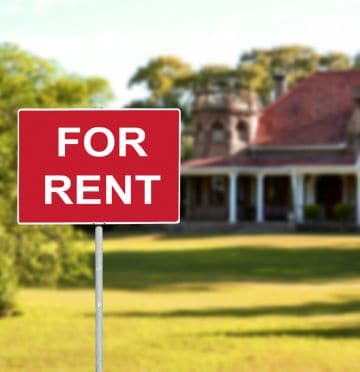
- The owner can change the actual state of the land on the site, which leads to a change in its legal status. For example, through the development of land for gardening and horticulture.
- The order is also expressed in the change of persons who again acquire the status of owner. If this concerns one owner of a land plot, then he has the right to sell the entire plot or part of it, donate it, lease it, bequeath it, exchange it for another, etc. The law provides for only 10 methods for the alienation of land.
- If we are talking about the right of shared ownership, then each owner can transfer his share in a convenient way to third parties.
In addition to the transfer, the land may not be disposed of by its owner, but, for example, the state itself may seize the land plot for its own needs.
On the contrary, the user of the land, for the reasons that were described in the previous section of the article, does not have the right of disposal.
Who has the right to dispose of land? Who is prohibited from doing this?
Only its owner, that is, the subject of property rights, has the right to dispose of land. Along with the state, the owners are individuals - these are:
- Russian citizens;
- Foreigners;
- people who do not have citizenship, but who live in Russia.
In addition to these categories of citizens, those persons who received their land plots on the right of lifelong inheritable ownership , which was relevant before the entry into force of the Land Code, can also dispose of them. From the name of this right it is already clear that the only action to dispose of land is to transfer it by inheritance. The following plots were transferred under this right:
- members of associations of gardeners, gardeners, summer residents (based on special federal law No. 66);
- citizens for gardening until 01/01/1991;
- if a building, structure or structure was acquired as a property, then the right in question was established on the land that was under these objects;
- for running a peasant (farm) economy;
- for military personnel who served from 10 to 15 years.
The law does not provide for other options for how to dispose of a land property without ownership rights.
It is prohibited to dispose of a plot of land to persons who are not the owners. This list includes:
- tenants and subtenants;
- user of land free of charge;
- a person who has a plot of land with the right of permanent (indefinite) use;
- persons who enjoy an easement in relation to a plot of land owned by others, which can be either by agreement between citizens or arise from an order of a government agency, if it concerns the needs of the population;
- owners who own plots with a certain legal regime.
The last category of legal owners includes those who have the following plots:
- agricultural plots;
- forest and hunting grounds;
- lands allocated for farming;
- areas intended for environmental purposes (hunting and fishing farms and for performing similar tasks);
- lands on which scientific research is carried out, training is carried out, etc.
A property right is an absolute civil right of a person, giving him the opportunity to directly dominate a thing and remove all other persons from it, protected by special civil claims. Property rights are characterized by the following features: the direct relationship of a person to a thing; absolute character; objects are only individually defined things; protection through special proprietary claims. The absolute nature of property rights is manifested in the fact that all third parties, without exception, are obliged not to interfere with the authorized person in using the thing and not to influence the thing without his permission. Consequently, third parties must be clearly aware of the types and content of real rights. It is this circumstance that explains the need for an exhaustive definition in law of the list of real rights and their content.
Types of property rights: The right of ownership (Article 209 of the Civil Code of the Russian Federation) is a set of legal norms regulating the ownership, use and disposal of property by the owner at his own discretion and in his own interests and the protection of this property from encroachment by third parties. Ownership is the ability to exercise actual dominion over a thing. The right of use is the opportunity to exploit property, extract useful properties from it, receive fruits and income. The right of disposal is the ability to determine the legal and actual fate of a thing. Property may be owned by citizens and legal entities, as well as the Russian Federation, constituent entities of the Russian Federation, and municipalities. The specifics of the acquisition and termination of ownership of property, possession, use and disposal of it, depending on whether the property is owned by a citizen or a legal entity, owned by the Russian Federation, a subject of the Russian Federation or a municipal entity, are established only by law. Other property rights (the right to someone else’s property) include: - the right of economic management (Article 294 of the Civil Code of the Russian Federation); — the right of operational management (Article 296 of the Civil Code of the Russian Federation); — the right of lifelong inheritable ownership of land (land plot (Article 265 of the Civil Code of the Russian Federation), which is now being transformed into the right of ownership); — the right to permanent (indefinite) use of a land plot (Article 268 of the Civil Code); — easement (the right to limited use of real estate) (Articles 274, 277 of the Civil Code of the Russian Federation); The types of real rights are defined in the law as follows: the right of ownership is the most extensive real right in terms of the scope of powers, providing the authorized person with maximum opportunities for using the property belonging to him; limited real rights (Article 216 of the Civil Code of the Russian Federation) are associated with the use of other people's land plots and other real estate, and are therefore subject to state registration. Such rights include easement (Articles 274, 277 of the Civil Code), lifelong inheritable possession (Article 265 of the Civil Code), permanent use (Article 268 of the Civil Code); limited real rights that formalize the property isolation of state and municipal unitary enterprises, state-owned enterprises and institutions - legal entities that are not the owners of the property assigned to them. The property of the named legal entities is assigned by the owner with the right of economic management (Article 294 of the Civil Code) and operational management (Article 296 of the Civil Code). The grounds for the emergence of ownership or other real rights to a newly created real estate property are provided for in paragraph 1 of Art. 218 of the Civil Code, which establishes that the right of ownership to a new thing manufactured or created by a person for himself in compliance with the law and other legal acts is acquired by this person. Article 263 of the Civil Code: the owner of a land plot acquires the right of ownership to a building and other real estate erected or created by him for himself on a land plot owned by him, subject to compliance with urban planning norms and rules during construction. Article 219 of the Civil Code establishes that the right of ownership of a building, structure and other newly created real estate arises from the moment of state ownership. registration of rights. Assignment of property by the owner to a unitary enterprise or institution with the right of economic management or operational management is possible only in relation to state property. or municipal treasury - real estate arises from the moment of registration in the Unified State Register. If property is acquired by an enterprise or institution as a result of independent and economic activity on its own behalf in accordance with its special legal capacity, it enters the household. maintenance or operational management in accordance with clause 2 of Art. 299 of the Civil Code of the Russian Federation in the manner prescribed for property rights.
Comparison
To better understand the category, it is necessary to understand the triad of property rights: possession, use, disposal. They can act both together (purchase of a private house, apartment) or separately (opportunity to live in a state dormitory). At the same time, the right to use is a self-sufficient category and can exist separately from other elements of the triad. In other words, a person does not own a thing, but he freely uses it within the limits established by law or agreement.
Ownership is always associated with the other facets of the triad. It is impossible to simply possess a thing: this in itself entails the possibility of its use and (or) disposal. Thus, in the era of feudalism, land plots were subject to the right of lifelong inheritable ownership. They were passed down from generation to generation, while in reality the property actually belonged to the sovereign.
The right of use is terminated upon expiration of the contract, by a court decision or on the basis of a regulatory legal act. Possession can either be alienated voluntarily or taken away by decision of authorized bodies (usually with compensation).
Differences between use and possession
Use and ownership in civil law and in relation to a lease agreement have a number of significant differences:
- ownership allows you to determine the mode of access of third parties to property;
- the key feature of use is to extract the useful properties of a thing;
- possession allows physical influence on property, including moving it in space;
- the date of creation of the right of ownership does not coincide with the date of conclusion of the lease agreement.
In the context of a lease, it is almost impossible to imagine the exclusive right to own a thing without the right to use it. This is due to the very nature of the relationship under the rental agreement.
In practice, there is a situation in which the parties to a transaction, when concluding it, did not provide for the scope of rights in the context of ownership (for example, the contract is very short). This fact is not a basis for invalidating the lease agreement. Judicial practice regards such a case as the basis of a transaction on legal provisions. That is, the tenant receives the maximum amount of rights provided by law - both possession and use.
To protect the interests of the parties in the event of limited rights of the tenant, it is necessary to provide for such provisions in the terms of the transaction.
Turnover of real estate assets
Real estate objects, like other things, are considered not limited in circulation (clauses 1, 2 of Article 129 of the Civil Code). Objects withdrawn from circulation must be expressly specified in the law. Limited negotiable objects are determined in accordance with the established law.
Real estate objects - buildings, structures, residential and non-residential premises - freely participate in circulation, unless they are excluded from circulation by law.
Should o. And an important characteristic of the legal regime of objects of civil rights is negotiability.
According to this criterion, things, including real estate, are divided into three categories:
- objects not limited in circulation - which can be freely alienated and transferred from one person to another in the order of succession (inheritance, reorganization of a legal entity) or in another way;
- limitedly negotiable objects that can only belong to certain participants in civil circulation or whose presence in circulation is permitted with a special permit;
- objects withdrawn from civil circulation.
First of all, “state property objects that are in public use and cannot, due to public interests, be the subject of civil transactions” are withdrawn from civil circulation.” The list of real estate objects that are exclusively in federal ownership, the privatization of which is prohibited, is contained in the Program for the Privatization of State and Municipal Enterprises in the Russian Federation, approved by Decree of the President of the Russian Federation of December 24, 1993 No. 2284.
This list includes: subsoil, forest resources, water resources; protected or specially used natural areas with real estate located on them; special testing grounds for weapons and military equipment; service and standard military equipment; reclamation systems and structures; immovable objects of historical and cultural heritage of federal significance according to the list approved by the Government of the Russian Federation; port hydraulic structures and facilities, facilities and structures included in ship traffic control systems; Atom stations; facilities, enterprises and equipment for the disposal of solid and liquid radioactive and toxic chemical waste; stationary social service facilities, including orphanages, children's homes, territorial social service centers, as well as boarding schools for orphans and children without parental care, boarding schools for children with mental and physical disabilities, homes for the elderly, nursing homes, hospitals, sanatoriums, boarding houses for the disabled, children and the elderly; radiotelevision transmission centers; air traffic control facilities of airports and airlines, federal airfields, etc.
When regulating the circulation of objects of vital importance to society, the principle of non-renewable natural resources is applied. Land and other natural resources can be alienated and transferred from one person to another to the extent that their circulation is permitted by the laws on land and other natural resources (clause 3 of Article 129 of the Civil Code). The turnover capacity of land plots is established by land, water, forestry and other legislation. In accordance with Art. 260 of the Civil Code, the owner of a land plot freely owns, uses and disposes of it, since the corresponding lands are not excluded from circulation or are not limited in circulation. Lands withdrawn from circulation cannot be provided for private ownership, nor can they be the objects of transactions provided for by civil legislation. Lands restricted in circulation are not provided for private ownership, except in cases established by federal laws.
Land plots occupied by federally owned objects have been withdrawn from circulation (clause 4 of Article 27 of the Land Code):
- state natural reserves and national parks (except for the cases provided for in Article 95 of the Land Code);
- buildings, structures and structures in which the Armed Forces of the Russian Federation, other troops, military formations and bodies are located for permanent activities;
- buildings, structures and structures in which military courts are located;
- objects of federal security service organizations;
- objects of organizations of federal state security bodies;
- facilities for the use of atomic energy, storage facilities for nuclear materials and radioactive substances;
- objects in accordance with the types of activities of which closed administrative-territorial entities have been created;
- objects of institutions and bodies of the Federal Penitentiary Service;
- military and civil burials;
- engineering and technical structures, communication lines and communications erected in the interests of protecting and protecting the State Border of the Russian Federation.
Limited in circulation in accordance with clause 5 of Art. 27 of the Land Code land plots in state or municipal ownership:
- within the limits of specially protected natural areas not specified in clause 4 of Article 27 of the Land Code;
- from the forest fund lands;
- within which water bodies that are in state or municipal ownership are located;
- occupied by particularly valuable objects of cultural heritage of the peoples of the Russian Federation, objects included in the World Heritage List, historical and cultural reserves, objects of archaeological heritage;
- provided to ensure defense and security, defense industry, customs needs and not specified in paragraph 4 of this article;
- not specified in paragraph 4 of this article within the boundaries of closed administrative-territorial entities;
- provided for the needs of transport organizations, including sea and river ports, train stations, airfields and airports, air traffic and shipping navigation support structures, terminals and terminal complexes in areas where international transport territories are being formed, etc.
It is advisable to supplement Article 134 of the Civil Code of the Russian Federation with an indication of such a complex thing as a complex of real estate. The turnover capacity of this kind of thing (complexes of gas and power plants, pumping stations, etc.) is beyond doubt. To be recognized as an immovable thing, the complex must meet the real estate criteria set out in Art. 130 Civil Code of the Russian Federation. A special distinctive feature of the complex could be the combination of dissimilar things with a single economic purpose
The turnover of agricultural land is regulated by the Law on the Turnover of Agricultural Land. Should o.
Real estate is an individually defined thing. The description and individualization of a real estate object, as a result of which the real estate object acquires such characteristics that make it possible to distinguish it from other real estate objects, is carried out through cadastral registration and technical accounting. The Office of the Federal Service for State Registration, Cadastre and Cartography is a federal body providing public services and functions in the field of: land management; maintaining real estate cadastres; inventory of real estate; state cadastral valuation of land (including for calculating land tax); valuation of other real estate (including for calculating property tax).
The procedure for describing real estate objects includes two stages:
- technical, which is characterized in the preparation of a description of the object by a commercial organization - carrying out land management of the site by a land management organization (with the formation of a survey file) or a technical inventory of the object by an accredited organization (BTI) with the preparation of a technical passport;
- stage of state registration, which consists of entering this object into the State Cadastre of Real Estate, which is maintained on the basis of the State Land Cadastre and the Unified State Register of Urban Development Objects.
The registration of real estate is accompanied by the assignment of a cadastral number. “A cadastral number is a number that is not repeated, and which is assigned to real estate during cadastral and technical registration in accordance with the procedure established by the legislation of the Russian Federation, and is retained as long as the property exists as a single object of registered right.” The cadastral number of a building or structure consists of the cadastral number of the land plot on which the building or structure is located and the inventory number of the premises.
Cadastral registration of land plots and inventory of buildings, structures, structures, residential and non-residential premises are necessary for state registration of rights. However, cadastral and technical registration have different legal meanings. With technical accounting, there is no formation, but only a description of a really existing object.
The procedure for technical inventory is regulated not by federal laws, but by regulations of the executive branch: “Resolutions of the Government of the Russian Federation dated October 13, 1997 No. 1301 “On state accounting of the housing stock in the Russian Federation” and dated December 4, 2000 No. 921 “On state technical accounting and technical inventory of capital construction projects in the Russian Federation." “The lack of state registration makes it impossible to acquire rights to real estate, since property plans are a necessary document to be submitted to the registration authority. In accordance with clause 3 of the provisions on the organization of state technical accounting and inventory in the Russian Federation, it is established that capital construction projects subject to state technical accounting and technical inventory are: objects completed construction and accepted for operation; unauthorized completed construction projects; objects under construction, including objects for which a construction permit has not been issued; abandoned objects."
Technical inventory is necessary for state technical accounting of all objects whose inventory has not previously been carried out. A planned inventory is carried out at least once every five years. Unscheduled is carried out when the object changes (redevelopment, re-equipment, reconstruction) and when transactions are made with this object. Objects of technical accounting are objects of civil rights, i.e. buildings, individual residential buildings, apartments. However, objects of technical accounting are not always the object of civil rights. An inventory and accounting of households, apartment buildings, property complexes, and condominiums is carried out. The objects of property rights and transactions are residential buildings and outbuildings in households, apartments and non-residential premises in apartment buildings, buildings and structures in industrial, technological and other complexes.
All of the above allows us to conclude that conducting a technical inventory of real estate is of an accounting nature and is not a legally binding presumption for judicial authorities conducting state registration of rights to real estate and transactions with it. If the judicial authority establishes that rights to an object that is not an immovable thing have been submitted for state registration, the judicial authority has the right to refuse registration with reference to the fact that the object is not an immovable thing. Thus, the actions of the justice authority are actually of a control nature in relation to the initial assessment of the property made by the technical inventory authority.
Lists of especially valuable items
These lists are formed jointly by bodies responsible for a specific area of activity of institutions and structures that manage state property. We are talking about the adoption of joint acts.
An example is institutions that are the media. Order of the Ministry of Communications and the State Property Management Agency N 138/300 classifies as particularly valuable property of institutions that are media, computer and office equipment with a book value of more than 30 thousand rubles. A similar criterion is applied to the software used.
A similar act in the field of education establishes the inclusion in this category of items of any value used exclusively for educational purposes. If we are talking about many areas of use, then the book value of the property assigned to operational management should be more than 50 thousand rubles.
Temporary use of property
Temporary use of property is an action by which one party transfers a thing to another. The person who uses it must return it in the condition in which it was received. Although its wear and tear or condition stipulated by the relevant contract should be taken into account.
The right to use property means the right to take from it the most useful properties. As for rental relations, it must be carried out according to the terms of the concluded agreement.
Parties
Citizens and legal entities have the right to act as parties to the property transferred for temporary use. But for commercial enterprises there is a restriction on the transfer of property for the use of their property to the founders, members of the control or management body, or managers.
Property transferred for temporary use
Property can be non-consumable or individually defined. For example, real estate (enterprises, land plots, isolated natural objects, property complexes, structures, buildings, structures, etc.) meets these requirements. Although it is important to pay attention to certain points. It is important in the document to indicate information that allows you to identify the property that is to be transferred to the borrower as an object of gratuitous use. If such data is missing, the document will be considered not agreed upon by the parties.
Terms of temporary use
The term is an important condition for temporary use, since it can be definite or indefinite. If one of the parties decides to refuse use, then it is necessary to notify the other party at least one month in advance, unless the agreement provides for a different notice period.
Rights of the party using the property
The transferred property should be used in accordance with the terms of the concluded agreement. If this is not indicated in the document, then it is in accordance with the purpose of the property. It is important that the user maintains the received item in good condition and monitors its current and major repairs. Income generated in connection with the use of real estate must be taken into account when calculating income tax. And, accordingly, the costs associated with its maintenance should be included in the costs as part of profit taxation.
Contractual forms for the use of residential premises: general provisions
There are several contractual forms for the use of residential premises; the main ones include a rental agreement for residential premises, a rental agreement for residential premises and an agreement for the gratuitous use of residential premises. In addition to this, there are other agreements: an agreement on the accommodation of temporary residents, an agreement on the accommodation of members of the owner’s family, former members of the owner’s family, a sublease agreement and others. Analysis of foreign legislation shows a similar division and legal regulation by civil and housing legislation
The most widespread agreement in the housing sector is the rental agreement for residential premises. The Civil Code of the Russian Federation distinguishes between a social tenancy agreement, a residential tenancy agreement in a social use fund and a “commercial” tenancy agreement. The term commercial is not used by the legislator; this designation is accepted in the scientific literature and practice in order to distinguish between contracts.
In theory, the question of the relationship between these agreements is widely discussed. Some authors adhere to the position that we are talking about types of rental agreements (for example, Sedugin P.I.), others qualify them as two independent types of agreements (Braginsky M.I., Vitryansky V.V.)
In addition to the two listed agreements, housing legislation distinguishes a rental agreement for specialized residential premises (Chapter 10 of the Housing Code of the Russian Federation) and a rental agreement in the houses of residential complexes, housing cooperatives, concluded by the tenant with a member of the cooperative who has not fully paid his share (that is, with a person who is not the owner ). Art. 128 Housing Code of the Russian Federation. Some authors believe that a rental agreement for specialized residential premises is a type of social tenancy agreement, but the legislator took a different position and clearly distinguished between these agreements.
In this regard, the attempt of the Civil Code of the Russian Federation to fully define the system of hired relations was not crowned with success.
The legislation does not contain special provisions governing the lease of residential premises and the agreement for the gratuitous use of residential premises. In this regard, when concluding such agreements, one should be guided by Chapter. 34, 36 Civil Code of the Russian Federation.
Before Part 2 of the Civil Code of the Russian Federation came into force, the rental agreement for residential premises applied to relations related to the use of residential premises for profit, both by citizens and legal entities. (Law of the Russian Federation of December 24, 1992 “On the fundamentals of federal housing policy”). With the adoption of the Civil Code of the Russian Federation, these relations were covered by Chapter. 35 “Lease Agreement”, but at the same time in paragraph 2 of Art. 671 of the Civil Code of the Russian Federation establishes a prohibition for legal entities to act as tenants under a rental agreement. Legal entities, if necessary, enter into a rental agreement for residential premises. The tenant has no right to use the residential premises other than for the residence of citizens, therefore the rental agreement for residential premises acts as an intermediate link and entails the need to conclude an agreement with the citizen - the user of the residential premises. The Civil Code of the Russian Federation does not contain an answer to the question of what kind of agreement should be concluded in this case. In the legal literature and law enforcement practice there is no unity on this issue. Various sublease, sublease, and rental agreements are concluded. In our opinion, in this case, the relationship between the tenant and the citizen using the residential premises for living should be built on the model of a residential rental agreement. The conclusion of other agreements will lead to infringement of the housing rights of citizens.
The issue of the subject composition of a residential lease agreement in the legal literature is controversial.
Some authors insist that only legal entities can act as tenants. Others allow the participation of individuals on the tenant’s side (Krasheninnikov P.V.)
We agree with the position according to which clause 2 of Art. 671 of the Civil Code of the Russian Federation does not establish any restrictions on the subject composition of a residential lease agreement, which is confirmed by the following arguments:
— the article only defines the possible range of agreements concluded by legal entities to formalize the ownership and use of residential premises, and excludes the rental agreement
— the lease agreement is outside the scope of Chapter. 35 of the Civil Code of the Russian Federation, the meaning of Art. 671 only in establishing a prohibition for legal entities to be tenants in a rental agreement
- relations arising from a residential lease agreement are regulated by Ch. 34 of the Civil Code of the Russian Federation (general provisions), which do not contain prohibitions on an individual acting as a tenant
As a result, we come to the conclusion: the distinction between a residential lease agreement and a residential lease agreement with the participation of individuals should be based on the purpose of the agreements: if an individual intends to live in a residential premises, we are talking about a rental agreement, but in the case of further transfer of residential premises premises to other citizens - about the rental agreement for residential premises.
Who does not have the right to dispose of land?
The laws provide for a number of circumstances under which a person can dispose of land without being its owner. If none of these conditions are met, then the person has the right only to use the allotment if there is a document giving him such a right.
People who cannot dispose of land include:
- people who are tenants or subtenants.
- Citizens who have the right to use the plot free of charge.
- People who can use the allotment on a perpetual basis.
- Persons who can use the plot as they wish on the basis of an easement. The latter must be imposed on someone else's property, in this situation on an allotment. This can happen by contract between citizens or by order of government agencies. The latter may occur if the imposition of an easement concerns the needs of the civilian population.
- Owners of plots who own land under a certain legal type regime.
Important. The above persons only have the right to use the land legally. As a result, these citizens will never become owners, unless, of course, the real owner wants to donate the plot to one of them.
Judicial practice under Art. 209 Civil Code of the Russian Federation
The practice of applying the norms of Art. 209 of the Civil Code of the Russian Federation has a huge number of ambiguous precedents. For example, case No. A10-5188/2012, where a dispute was considered regarding illegally erected power lines on a land plot owned by a person without the consent of the owner of the plot, as a result of which the plaintiff went to court with a demand to dismantle the structure. The court, referring to the expert opinion, refused to satisfy the owner's demands, citing the fact that dismantling the power line support could lead to the risk of wire breakage and disruption of the power supply to a large number of residents of the locality. This fact is disproportionate to the limitation of the plaintiff’s rights to the land plot, which belongs to him by right of ownership and which is encumbered by the erected power line support.
Thus, the court can establish restrictions and encumbrances on property owned by a person if another solution to the legal situation is impossible.
Sources
- https://arendaexpert.ru/pravo-vladeniya-i-pravo-polzovaniya/
- https://freespravochnik.net/info/vladenie-i-rasporjazhenie-otlichija/
- https://zakonguru.com/nedvizhimost/zemelnyj/ispolzovanie-vladenie
- https://zen.yandex.ru/media/rulaws/chem-otlichaetsia-pravo-sobstvennosti-ot-vladeniia-i-polzovaniia-5d88caf60a451800aeecb27e
- https://TheDifference.ru/chem-otlichaetsya-vladenie-ot-polzovaniya/
- https://xn--80aajrcjbjmedh4bq.xn--p1ai/zhilishche/vladenie-rasporyazhenie-polzovanie.html
- https://suvorov.legal/polzovanie-imushhestvom/

